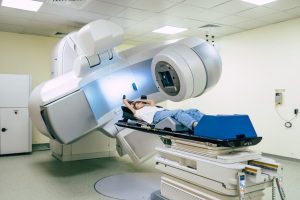
External vs. Internal Radiation for Breast Cancer
If you’ve been diagnosed with breast cancer, you may have heard radiation therapy discussed as part of your treatment plan. This approach is commonly used
HIPAA Alert: Potential Data Breach Learn More
Questions on Oncology, Hematology and/or Infusion Clinical Services due to COVID-19 Crisis – CALL 833-698-1623
Important Information for Our Patients Regarding the Coronavirus.
RCCA Providing Area Cancer Patients with Access to Care During Coronavirus Outbreak
RCCA Offering Patients Virtual Visits During Coronavirus Pandemic
Cervical cancer is most treatable when it is caught in its early stages. Routine screening can alert patients to cancer before it shows symptoms. It may even detect precancerous changes, letting treatment begin before the cancer fully develops. Some patients struggle to take advantage of in-office screening, however, putting them at risk of a late diagnosis.
Two new HPV tests allow patients to collect their own samples. Now, patients can be screened for cervical cancer without a pelvic exam.
Many individuals diagnosed with cervical cancer turn to Regional Cancer Care Associates (RCCA) for treatment. RCCA is a group of more than 100 medical oncologists and hematologists who treat patients who have solid tumors, blood-based cancers and benign blood disorders at more than 20 locations throughout New Jersey, Connecticut, Massachusetts, and the Washington, D.C., area. They strive to educate patients while providing innovative care.

Human papillomaviruses (HPVs) are a group of more than 200 related viruses, some of which can cause cancer. About 30 HPV types are easily passed through sexual contact. Among these, two are responsible for more than 70% of cervical cancer cases. HPVs have also been linked to vulvar cancer, vaginal cancer, penile cancer, anal cancer, and certain head and neck cancers.
Because of the close connection between HPV and cancer, detecting HPV is an effective way to predict cancer risk. If HPV is found in an individual’s cervix, then the patient can begin cervical cancer treatment before the cancer fully forms. This early start provides the best chance of defeating cancer quickly.
Routine screening refers to a medical test that patients receive regularly to detect cancer before it shows symptoms. There are two common screening methods for cervical cancer, both using samples taken during a pelvic exam:
The American Cancer Society (ACS) recommends HPV testing every five years for people aged 25 to 65. If primary HPV tests are not available, then individuals can receive a co-test that combines the HPV and Pap tests. They may also receive a Pap test alone every three years.
While routine screening is the most effective way to detect precancer and cancer, about 30% of people do not get screened for cervical cancer at the recommended times. There are many logistical and financial obstacles that may make HPV screening difficult, including:
These challenges make screening less accessible to people experiencing poverty, who live in rural areas, or who are from racial or ethnic minorities. Even among people who can reliably access pelvic exams, not all of them take advantage. Many people are unable to receive an exam due to physical disabilities, medical conditions, a history of trauma, or religious or cultural beliefs.
In May 2024, the Food and Drug Administration (FDA) expanded its approval of HPV tests to allow for self-collection. This means individuals can collect their own vaginal samples without requiring a pelvic exam.
Two devices are currently approved for self-collection. One is similar to a large cotton swab, while the other resembles a tampon. Self-collection devices are provided by screening clinics to be used in a restroom or other private space. The patient inserts the device into her vagina to take a sample. The sample is then sent to a laboratory to be tested following the same methods approved by FDA for traditional screenings, meaning results for both are equally accurate.
Approval for self-collection is a massive step forward for cancer screening accessibility. Testing does not have to be done with a women’s healthcare provider, meaning that people can be screened at a primary care office, mobile clinic, or whatever medical facility is most accessible to them. It also allows for a more private, less invasive process than a pelvic exam.
The advances do not stop here, either. Ongoing medical research is working to improve and expand the opportunities for HPV self-collection:
Screening guidelines are typically updated every seven to 10 years, but cervical cancer research is advancing at a much more rapid pace. Patients can speak with their physician to determine the most appropriate test type, schedule, and process for their needs.
New developments in HPV tests for cervical cancer and precancer screening are helping to overcome barriers to accessibility. Regional Cancer Care Associates educates patients to help them avoid life-threatening cancer. RCCA specialists provide care to more than 30,000 new patients and 265,000 established patients each year. RCCA physicians offer patients innovative therapies, including immunotherapies and targeted therapy, cutting-edge diagnostics as well as access to approximately 300 clinical trials in community-based centers close to home.
What causes cervical cancer?
Over 70% of cervical cancer cases are caused by HPV infections. Other risk factors include:
What are the early signs of cervical cancer?
Early stages of cervical cancer do not cause symptoms. When symptoms develop later, they include:
It is important to note that the great majority of individuals who experience one or more of the symptoms listed above will not have cervical cancer. Nonetheless, it is important to consult a physician about these symptoms, particularly if they are pronounced, arose suddenly, or have persisted for an extended period.
What treatments are available for cervical cancer?
Cervical cancer can be treated with targeted therapy, immunotherapy, chemotherapy, radiation therapy, and surgery. More aggressive treatments are required as the cancer advances, which is why it’s important to identify cancer early.
For more information or to schedule an appointment,
call 844-346-7222. You can also schedule an appointment by calling the RCCA location nearest you.

If you’ve been diagnosed with breast cancer, you may have heard radiation therapy discussed as part of your treatment plan. This approach is commonly used

Cancer and its treatment often impact a person’s quality of life. In the case of prostate cancer, a man’s sex life may be affected. Sexual

Lung cancer is commonly considered a smoker’s disease, as cigarette smoking is the most significant risk factor for its development. However, not all cases are

Regional Cancer Care Associates is one of fewer than 200 medical practices in the country selected to participate in the Oncology Care Model (OCM); a recent Medicare initiative aimed at improving care coordination and access to and quality of care for Medicare beneficiaries undergoing chemotherapy treatment.